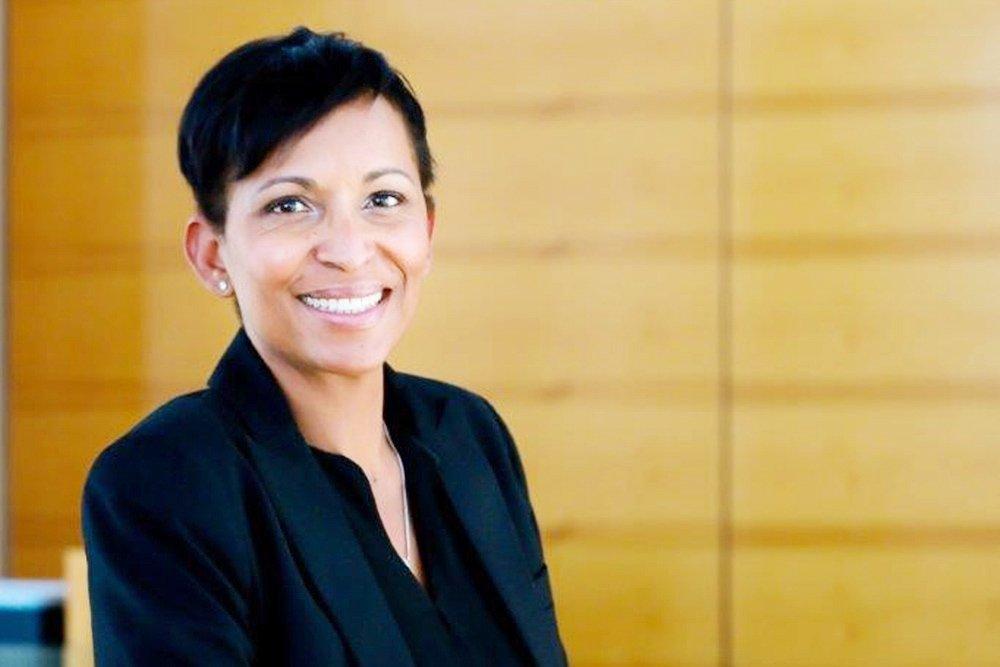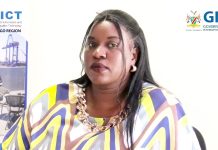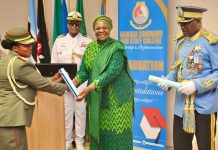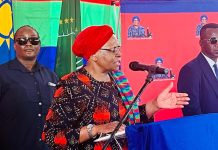Africa-Press – Namibia. Displaying confidence, composure and legal mastery, a hopeful Esi Schimming-Chase faced a rigorous public interview last Friday as she was advancing her candidacy for a seat on the apex court’s bench.
The interview was held publicly at the Supreme Court of Namibia before four justices of the Judicial Service Commission.
As the sole contender before the panel for elevation to the Supreme Court, Schimming-Chase was tested intellectually and on her understanding of the demands of Namibia’s highest court of appeal.
The interview panel consisted of Chief Justice Peter Shivute, Deputy Chief Justice Petrus Damaseb, Commissioner Advocate Yoletta Campbell and Commissioner Elias Shikongo.
Schimming-Chase introduced herself as a legal practitioner of the High Court, has been a judge of the High Court since 2021 and an acting judge of the Supreme Court since 2023.
She has written approximately 180 to 200 judgements in the High Court since 2011.
Various questions were posed, ranging from the circumstances that which Parliament may reverse a decision of the Supreme Court, interpretation of the Constitution by Supreme Court as opposed otherwise, and on current judicial affairs (go-slow by magistrates).
Without hesitation, she pointed out that a Supreme Court decision is final and any attempt to change that decision by the Legislature must be lawfully enacted within the prescripts of the Constitution.
In response to whether there would be a scope for parliamentary sovereignty to take precedent, Schimming-Chase stated “that is a very difficult question, because it involves a very complicated balance between the arms, the Executive, the Legislature and the Judiciary.
She stated that each decision of the Supreme Court must be made carefully and purposely and in the instance that legislation is enacted after a decision has been made binding, the SC would have to determine whether that it is lawfully enacted or not.
In the instance that the legislative law is found to be lawful, then the State can make laws.
Upon questioning, she indicated that as someone who has made an oath to uphold the Constitution, the SC must expect someone of a combination of a judicial activist and of a legal positivist.
Justice Shivute posed an interesting question on the extent if any, the SC, should defer to the majority opinion in issues relating to the protection of minority rights?
She responded that when constitutional interpretation involves an interpretation of the norms of the public, the majority decision doesn’t always play a role when it comes to minority rights.
She indicated that courts must always look at the view of the majority, but that it cannot do that without ignoring minority rights.
The most probing question came from Shikongo, who challenged her experience with complex commercial matter, particularly on the issue of special treatment afforded to primary residences as opposed to commercial property.
Schimming-Chase, unfazed, calmly detailed the consideration of the constitutional bench in South Africa on the matter, also citing instances where she came across such disputes.
She pointed out that in the country’s laws, rules have been put in place to allow the protection of the dignity of Namibian individuals by having a roof over their heads.
She stated that rule 108, enacted to protect such rights, was not enacted as a means to avoid paying what an individual lawfully agreed to pay, for instance, a house debt, but to agree to at least pay something in a balancing interest.
On the values that a SC judge must hold, she stated she has to adjudicate without fear or favour and must act in the pursuit of justice, the integrity of the Judiciary and leading by example.
She also responded on affairs, especially the widely-disputed purported country-wide go-slow by magistrates, claiming that she would not go on a go-slow because of her responsibility to the Constitution and that she is a critical service provider to the administration of justice, rule of law and public order.
She stated that she believes that she lives in a constitutional environment that considers her remuneration and where she would be paid what she is worth.
Even when confronted with prominent, prevalent matters, including involving same-sex relationships, Schimming-Chase’s answers reflected a deep analytical capacity and an appreciation for judicial precedent.
As the session concluded, Schimming-Chase reaffirmed her commitment to serve.
She has a wide ranging experience in general commercial, constitutional and administrative law practice, predominantly as a trial and motion practitioner, and also in the arbitration and dispute resolution fields.
For More News And Analysis About Namibia Follow Africa-Press






